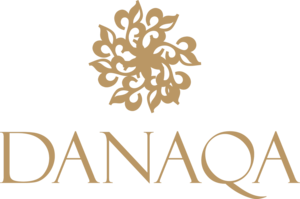September 27 and 28, we will celebrate the Muslim holiday of “Mawlid” and the Ethiopian Orthodox Christian holiday of “Meskel” respectively. Sabahar will be closed on both days.
Ethiopia is one of the oldest Christian states in the world. Islam in Ethiopia dates to the founding of the religion itself. Islam is the second largest religion in Ethiopia accounting for more than 35% of the population. The co-existance of these two ancient religions makes Ethiopia so culturally rich. Muslims and Christians work, eat, mourn, and celebrate together.
Mawlid in Ethiopia
“Mawlid” (Eid-e-Milad an-Nabi), is the Islamic observation of the day when the Islamic prophet Muhammad was born and is commemorated in Rabi' al-Awwal, the third month in the Islamic calendar.
Muslims celebrate this holiday with family. They do processions between several Mosques throughout the month.
Ethiopia was the chosen safe haven for Muslims. The Prophet himself instructed his followers to travel to Ethiopia (Abyssinia) to escape the persecution they were facing in Mecca. They were received by the Axumite empire and became the first foreign country to accept Islam when it was unknown in most parts of the world.
Bilal ibn Ribah, the first Muezzin and a companion of Muhammad was born in Mecca to an Abyssinian mother, becoming the first person of known African ancestry to become Muslim.
The Prophet's instruction to his followers was “to respect and protect Abyssinia as well as live in peace with the native Christians”, and this harmony has survived and can be witnessed beautifully to this day here in Ethiopia.
Meskel
“Meskel” is a celebration commemorating the finding of The True Cross. The festival is known as the Feast of the Exaltation of the Holy Cross in other Orthodox, Catholic or Protestant churches. It is one of the most celebrated holidays in Ethiopia. One reason it is so observed is that it is believed that a part of the True Cross was brought to Ethiopia from Egypt and is said to be kept in the Amba Geshen church.
The Meskel holiday will be filled with processions to Church and eventually, the building of a bonfire and prayer while watching it burn. During Meskel, neighborhoods gather to build and then burn a large bonfire, or Demera. This is done based on the belief that Queen Eleni had a revelation in a dream. She was told that she should make a bonfire and that the smoke would show her where the True Cross was buried. So, she ordered the people of Jerusalem to bring wood and make a huge pile. After adding frankincense to it, the bonfire was lit and the smoke rose high up to the sky and returned to the ground, exactly to the spot where the Cross had been buried.
There are a number of beliefs to the meaning of Demera, with some believing that it "marks the ultimate act in the cancellation of sins, while others hold that the direction of the smoke and the final collapse of the heap indicate the course of future events.
The Meskel processions are serenaded by the ancient hymns composed by St. Yared. He composed many religious songs and hymns devoted to particular occasions and religious commemorations.
Many people will return to their villages (from the cities) to celebrate Meskel. This particular holiday is very important for people in the southern nations and the Gurage. Most of Sabahar’s weavers come from southern Ethiopia and many return home for the holiday.

